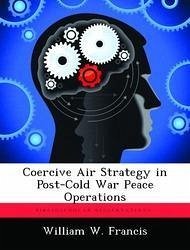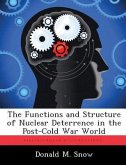This paper analyzes coercive air strategy in Iraq and Bosnia to ascertain lessons and implications for coercive air strategy in twenty-first century peace operations. The analysis focuses on: Operations Provide Comfort/Northern Watch, Southern Watch, Desert Fox, Deny Flight, Deliberate Force, and Allied Force. The analysis and comparison of these operations and the factors affecting them reveal the following attributes of airpower in peace operations: 1) Airpower is highly effective in achieving tactical and operational objectives; 2) Airpower represents the lowest risk force application method; 3) Punishment is the coercive mechanism of airpower; and 4) Airpower technology, training, and experience drive common air tactics and strategy in very different situations. These attributes imply: 1) that the low-risk tactical and operational successes in Iraq and the Balkans will result in a dependence on airpower in future peace operations (Kosovo); 2) that airpower will be applied as punishment for non-compliant behavior in an attempt to convey the futility of further non-compliance; and 3) Air strategies and objectives will be similar to past peace operations regardless of the situation. Nevertheless, as this study will show, airpower can be an effective means of coercion in peace operations, but it cannot mandate compliance. The target of coercion determines the duration of the coercive air campaign. Thus, states employing airpower as the sole means of coercion in future peace operations should acknowledge indefinite commitments or be prepared to fall short of their original objectives.
Hinweis: Dieser Artikel kann nur an eine deutsche Lieferadresse ausgeliefert werden.
Hinweis: Dieser Artikel kann nur an eine deutsche Lieferadresse ausgeliefert werden.








